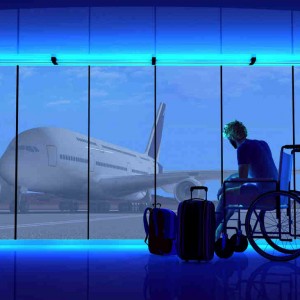Parent Project Muscular Dystrophy Partners with Catabasis for CAT-1004 Trial
Written by |

 The Parent Project Muscular Dystrophy (PPMD), a not-for-profit organization supporting research into Duchenne muscular dystrophy (DMD) and providing patient-family support, has just announced it has signed a partnership agreement with clinical stage biotechnology company, Catabasis Pharmaceuticals, Inc., to collaborate on a Phase II clinical study of their pipeline product CAT-1004. As stipulated in the agreement, PPMD will be shouldering the clinical trial’s participants’ travel expenses to the study site, which will be conducting the trial within the first half of 2015.
The Parent Project Muscular Dystrophy (PPMD), a not-for-profit organization supporting research into Duchenne muscular dystrophy (DMD) and providing patient-family support, has just announced it has signed a partnership agreement with clinical stage biotechnology company, Catabasis Pharmaceuticals, Inc., to collaborate on a Phase II clinical study of their pipeline product CAT-1004. As stipulated in the agreement, PPMD will be shouldering the clinical trial’s participants’ travel expenses to the study site, which will be conducting the trial within the first half of 2015.
Jill Milne, Ph.D., Catabasis’ co-founder and Chief Executive Officer, said, “PPMD’s willingness to help with patient participation in our innovative trial is a great example of PPMD’s commitment to finding a cure for this devastating disease.”
Duchenne muscular dystrophy (DMD) affects about 1 out of every 3,500-5,000 male children, and is considered the most common, untreatable genetic disorder that manifests as early as infancy. The muscle wasting, loss of ambulation, and eventual cardiorespiratory failure that occurs in DMD is caused by a genetic mutation that deprives that body from functional protein “dystrophin.”
[adrotate group=”3″]
CAT-1004 is Catabasis’ experimental treatment for DMD that works to inhibit an inflammatory pathway, mediated by a molecule called NF-ĸB, known to drive disease progression. In preclinical studies using mice models deprived of dystrophin, CAT-1004 demonstrated the ability to reduce inflammation and stimulate muscle regeneration while showing a favorable safety and tolerability profile in a cohort of healthy participants. Towards the end of November 2014, the US Food and Drug Administration (FDA) granted CAT-1004 an Orphan Drug Designation for DMD.
Pat Furlong, the organization’s Founding President and Chief Executive Officer, believes it is now more than ever, when biomedical research has begun to aggressively pursue treatments for DMD, that their patient support services are needed in order to spur participation in clinical trials. “Subsidizing travel expenses is one way PPMD can at least help ease the financial burden, especially in a therapy we believe in like CAT-1004. The team at Catabasis is committed to helping the Duchenne community so it is our obligation to our children and their future to help Catabasis help us.”





